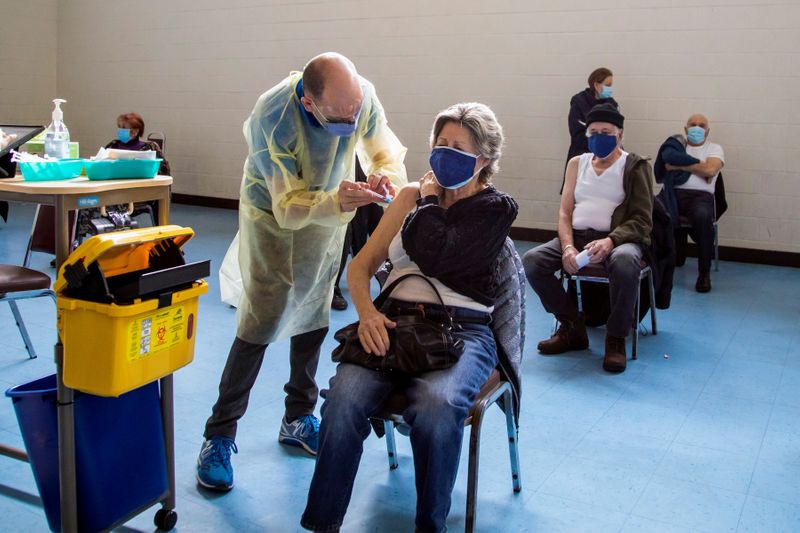By Steve Scherer and David Ljunggren
OTTAWA (Reuters) - Canada said on Tuesday it was talking to Johnson & Johnson (NYSE:JNJ) about reports that its COVID-19 vaccine might cause rare blood clots, while Prime Minister Justin Trudeau said a surge in dangerous virus variants could threaten progress made so far.
U.S. federal health agencies on Tuesday recommended pausing the use of the J&J vaccine for at least a few days after six women under age 50 developed blood clots after receiving the shot.
Health Canada, the federal health ministry, said it was working with the manufacturer, the U.S. Food and Drug Administration and other international regulators.
"Health Canada has asked Janssen to provide information on any cases of these rare blood clotting events," it said in a tweet, referring to J&J's pharmaceuticals unit. Canada has approved the vaccine but deliveries are not due to start until the end of April.
Separately, Canada said it had recorded its first case of the rare blood clot with low platelets condition after someone received the AstraZeneca (NASDAQ:AZN) Plc COVID-19 shot.
The person is recovering, the health ministry said. Canada has limited the use of the AstraZeneca vaccine to those above age 55 over concerns about the rare reaction.
The news is the latest potential challenge for an inoculation effort that is already dragging.

Canada is due to import enough doses to ensure every person can receive a shot by the end of June, but the spread of new virus variants risks overtaking the pace of vaccination.
"More contagious and dangerous variants are spreading and threatening the progress we've made," Trudeau told a briefing, saying the situation was extremely serious as the number of cases jumps and the healthcare system struggles to respond.
Chief public health officer Theresa Tam said new cases had risen by 33% over the last week. The number of daily cases is now over 8,100, about the same as during the peak of the second wave earlier this year.